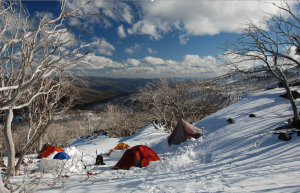Sunday 31 May 2020
When writers work together, something magical happens. Welcome to Work Space, an inspiration-fuelled day of writing, planning, and not-gross networking, designed with you in mind. Over the course of a day, we’ll connect over video chat to meet each other and tap into our inner muses. We’ll start with creative writing exercises then break out for individual writing time, before getting back together for sharing and workshopping. Most of all, this day is designed for you to carve out some hardcore writing time. Crafted for writers of all genres and forms, whether you’re after direct feedback from your peers, need to block out solid writing time, or want to workshop a plot line, poem, chapter or synopsis, our multi-purpose co-working day is for you.
Schedule
9:00AM – Welcome, introductions, day overview
9:15AM – Write!: Morning Pages
- Let your stream of consciousness run. Start with a blank page. Then just start writing. Don’t stop to edit or think about what you’re saying. This is called free writing. This writing exercise is what Julia Cameron, author of The Artist’s Way, calls “morning pages.” She suggests writers do this every day right when they wake up. Stream of consciousness writing can draw out some interesting ideas. Just let your brain lead and your fingers type.
9:45AM – Check-in
9:50AM – Morning tea
10:00AM – Top tips & meditations for writing
- A good, long list of writing tips
- Dig: “Stories are relics, part of an undiscovered pre-existing world. The writer’s job is to use the tools in his or her toolbox to get as much of each one out of the ground intact as possible.” – Stephen King
- Find the joy: “The joy of being an author is the joy of feeling I can do anything. There are no rules. Only: can you do this with confidence? Can you do it with aplomb? Can you do it with style? Can you do it with joy?” – Neil Gaiman
- Stubborn gladness: “I don’t go up against my writing and come out bloody-knuckled. I don’t wrestle with the muse. I don’t argue. I try to get away from self-hatred, and competition, all those things that mark and mar so many writers’ careers and lives. I try to remain stubborn in my gladness.” – Elizabeth Gilbert
- Narrow the gap: “Even my finished books are approximations of what I intended to do. I try to narrow the gap, as much as I possibly can, between what I wanted to say and what’s actually on the page. But there’s still a gap, there always is. It’s very, very difficult. And it’s humbling.” – Khaled Hosseini
- Don’t wait: “Writing a first draft, you can become paralyzed by these [inner critic] thoughts. So I literally tell the voices to quiet down. I praise them for their perspicacity, and I tell them how much I need them—that I will want them later. But I cannot listen to them right now, because I am confused by them. And I don’t sit there waiting for that perfect, beautiful sentence, because I know I’m going to sit there forever.” – Kathryn Harrison
10:20AM – Rapid-fire descriptive exercise: write the scene (in verse or prose, however you like), where it is, what is happening; flex your creative muscles to paint a word-picture.



10:35AM – Dig! Extended exercise: take a significant scene from your project and bring it to life. Start with background, middle-ground, foreground. Who is here and what is happening through the duration of this scene. Try to write as much as possible; don’t edit, just write.
11:55AM – Check in
12:00PM – Lunch, and a little task: go outside for a short walk, if you can (or go into a different room of your house), and just notice six things.
12:45PM – Workshopping and Q&A: get feedback on an excerpt, try out a pitch, tell us about your plot dilemmas, or ask a question about craft/publishing.
2:15PM – Afternoon tea
2:30PM – Inspiration boost
- Get amped on some stirring poetry, and a little Zadie Smith:
- “In the middle of a novel, a kind of magical thinking takes over. To clarify, the middle of the novel may not happen in the actual geographical centre of the novel. By middle of the novel I mean whatever page you are on when you stop being part of your household and your family and your partner and children and food shopping and dog feeding and reading the post—I mean when there is nothing in the world except your book, and even as your wife tells you she’s sleeping with your brother her face is a gigantic semi-colon, her arms are parentheses and you are wondering whether rummage is a better verb than rifle. The middle of a novel is a state of mind. Strange things happen in it. Time collapses.”
2:45PM – Dig! Extended exercise: an hour of power-writing. Go for quantity over quality; maximise your word-count. Choose a scene/chapter/idea from your project that you’ve been stuck on (or, dying to start) and just write it.
3:45PM – Check in
4:00pm – Goodbyes




